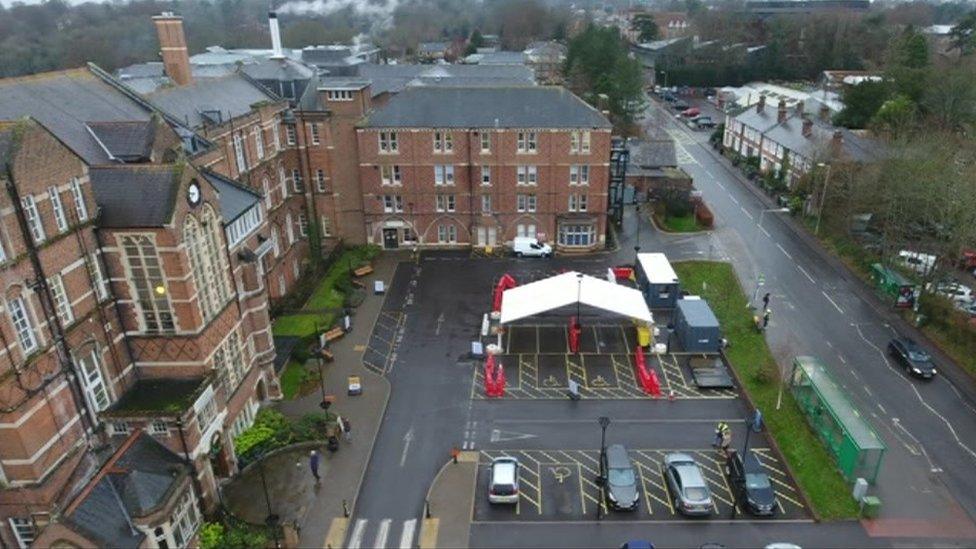Lucy Howell: Childbirth death may not have been avoidable, coroner says
- Published

Lucy Howell was worried about the risks of her birth plan, the inquest heard
A woman died during childbirth after a hospital failed to recognise the risks of allowing a natural delivery, a coroner has concluded.
Lucy Howell, 32, from Bishop's Waltham, died at the Royal Hampshire County Hospital in Winchester in March 2021.
However, coroner Rosamund Rhodes-Kemp concluded there was no evidence her cardiac arrest was avoidable.
Hampshire Hospitals NHS Trust said it had learned lessons from Mrs Howell's death.
WhatsApp message
The environmental engineer suffered a uterine rupture while giving birth to her daughter, who survived, the hearing in Winchester was told.
The inquest heard she agonised over her decision to have a natural delivery instead of a caesarean section, at one point sending a WhatsApp message to her husband saying: "What if I die? What if it all goes wrong?"
Mrs Howell had previously undergone laparoscopic niche repair surgery in 2019 to fix a problem in her uterine following an earlier C-section, the coroner heard.
Nobody at the hospital had any experience of dealing with a patient who had had the repair procedure, the court was told.

Mrs Howell died at the Royal Hampshire County Hospital in Winchester
One consultant, Renee Behrens, had observed the operation and a single conversation, in a hospital corridor, sealed Mrs Howell's birth plan, the inquest heard.
Her obstetrics consultant, Dr Jean Goodman, asked Dr Behrens if she thought it was safe to proceed with a vaginal birth.
She was told Mrs Howell was not at additional risk as long as she was appropriately monitored, the coroner heard.
An expert on the niche repair procedure, Prof Judith Huirne, told the court she recommended that women who subsequently fell pregnant should deliver by C-section "to err on the safe side".
In a narrative verdict, Mrs Rhodes-Kemp concluded: "None of those obstetricians involved in the birth had experience of this kind of history or the risk of rupture that this posed.
"Had they known and conveyed this information to Lucy she may have chosen to have an elective caesarean.
"However, whilst this would have avoided the rupture there is no evidence available from which to conclude that she would have avoided the amniotic fluid embolism [AFE] and therefore her tragic death."
AFE is a rare and usually fatal condition that occurs when amniotic fluid enters the mother's blood vessels, according to the NHS.
Julie Dawes, chief nurse at Hampshire Hospitals NHS Foundation Trust, said: "Our heartfelt condolences are with Lucy's family, and we are deeply saddened by the events surrounding her death.
"Whilst the learnings and insight from this tragic loss cannot bring Lucy back, it has informed actions being taken to better support our patients and their families in rare cases such as this."

Follow BBC South on Facebook, external, Twitter, external, or Instagram, external. Send your story ideas to south.newsonline@bbc.co.uk, external.
- Published21 March 2023
